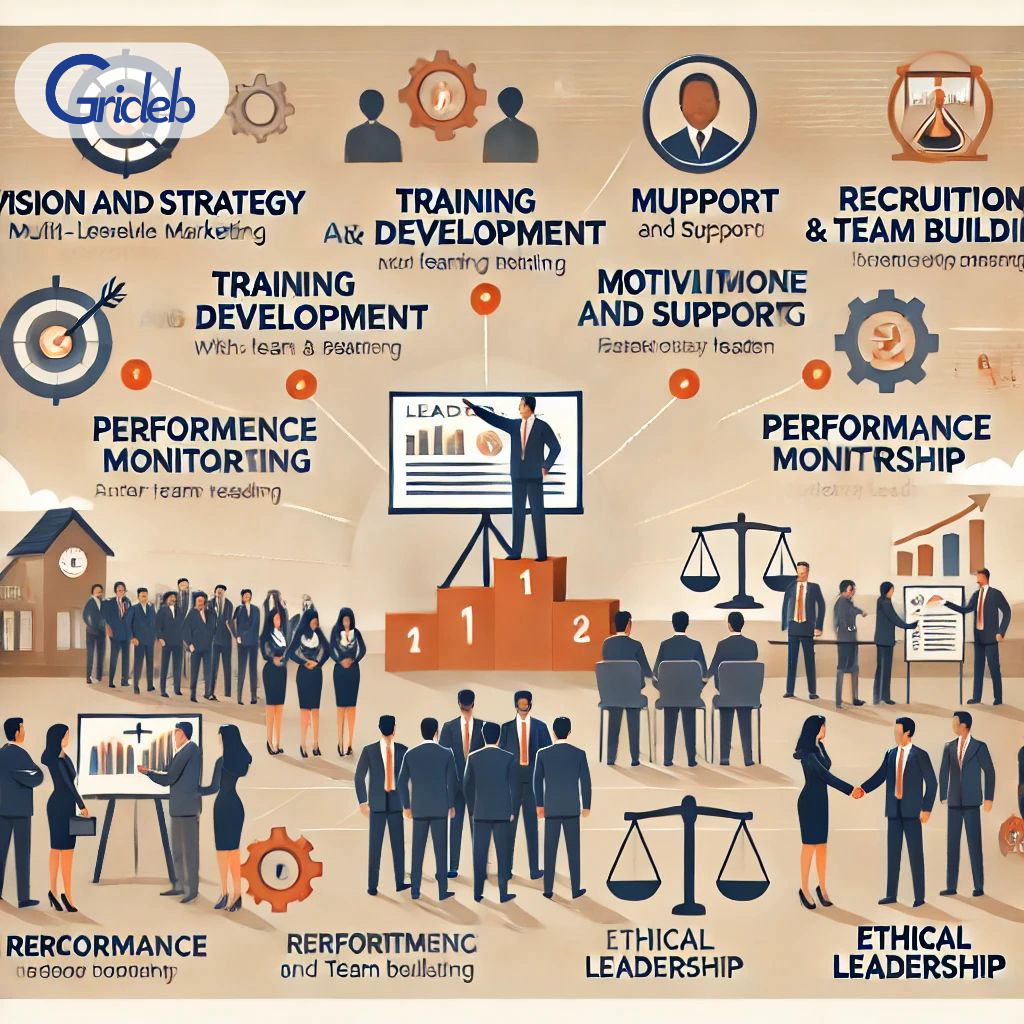The Role and Responsibilities of a Leader in MLM Industries

The Role and Responsibilities of a Leader in MLM Industries
Multi-Level Marketing (MLM) has been a topic of fascination and controversy since its inception. At its core, MLM offers a unique business model that allows individuals to earn income through both personal sales and the recruitment of others. While some view it as an opportunity for financial freedom, the success of MLM largely hinges on effective leadership. In this blog, we’ll explore the vital role of a leader in the MLM industry and outline their key responsibilities.
The Foundation of MLM Leadership
A leader in MLM is more than just a figurehead; they are the driving force behind the success of their team. According to the Direct Selling Association, the industry has seen steady growth, with estimated sales reaching $40.1 billion in the United States alone in 2022. This success underscores the importance of strong leadership in navigating the complexities of the MLM landscape.
Key Responsibilities of an MLM Leader
1. Vision and Strategy
One of the primary responsibilities of an MLM leader is to establish a clear vision and strategy for their team. This involves setting realistic goals and outlining the steps necessary to achieve them.
2. Training and Development
Effective training is crucial in MLM, where products and compensation plans can be complex. Leaders are responsible for equipping their team with the necessary knowledge and skills to succeed.
3. Motivation and Support
Motivating team members is a core responsibility of an MLM leader. The nature of MLM can lead to challenges, and leaders must provide ongoing support, encouragement, and recognition.
4. Recruitment and Team Building
A leader in MLM is tasked with recruitment and building a strong team. This involves assessing potential recruits and ensuring they fit well within the team dynamic.
5. Performance Monitoring
Tracking performance is essential in MLM. Leaders must regularly assess their team's sales, recruitment, and overall engagement to identify areas for improvement.
6. Ethical Leadership
In an industry often scrutinized for its practices, ethical leadership is paramount. Leaders must model integrity and transparency, building trust within their team.
Conclusion
The role of a leader in the MLM industry is multifaceted, encompassing vision, training, motivation, recruitment, performance monitoring, and ethical standards. As the industry continues to evolve, effective leadership will remain a cornerstone of success. By fostering a culture of support and growth, MLM leaders can empower their teams to achieve their personal goals and contribute to the overall success of the organization.